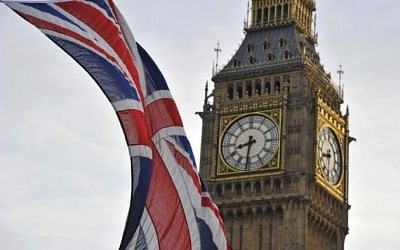
Papers not in Order
The United Kingdom recently announced that some visitors from certain high-risk countries will have to pay a £3,000 (₹270,000) security bond when obtaining their visas which are liable to forfeit if the visitor does not leave the United Kingdom within the stipulated time on the visa. The countries deemed to be of significance are Bangladesh, Ghana, India, Nigeria, Pakistan, and Sri Lanka. The scheme is to be rolled out on an experimental basis in November and expanded over time.
The Indian government’s reaction to the news has been restrained, though the press has been agitated to say the least, with most newspapers and bloggers demanding that India retaliate against this blatant discrimination. The Confederation of Indian Industry (CII) had expressed disappointment over the Home Office’s methods of curbing illegal immigration as have some Opposition members (though it had been floated several times when Labour was in power).
There are several issues at play here, and not just British “unfriendliness” as Indians have tried to portray it. First, one doubts that there is any disagreement over the reasoning behind Fong Yue Ting v United States (1893) which declared that it was the inalienable sovereign right of a state to admit or remove people from within its jurisdiction. The United Kingdom is within its rights to create whatever procedures it deems fit to manage the ingress and egress of visitors to its shores.
Second, it is unlikely that the British government has not calculated the cost of such a policy on its revenues. Last year alone, some 300,000 Indian tourists visited the UK and spent approximately £200 million. Strict immigration policies have already caused a sharp downturn in tourists and students who seek a British education.
Additional visa burdens will certainly lower the number of Indians visiting the UK, but it should not affect businessmen or students if David Cameron’s plan of same-day visas for the former and no quota for the latter is put in place too. These two categories already have institutional checks in place and less liable to “go off the grid.”
Third, it might be worth asking how much illegal immigration occurs from these high-risk countries. According to a 2012 Home Office report, India is among the top ten sources of illegal immigrants into the UK. In 2010 alone, almost 6,000 Indians were deported from the country, and interestingly, another 7,000 illegal Indians left of their own accord.
India, along with Afghanistan, Bangladesh, Brazil, China, Iran, Nigeria, Pakistan, Vietnam, and Zimbabwe, is responsible for 61% of all illegals uncovered in the UK, and most of those come from India and Nigeria.
It is also true that visa restrictions on Indians became more and more stringent as irregular migration patterns continued: up until the 1980s, Indians could obtain a visa on arrival, but by the end of the decade, they had to be acquired before departure.
Visa regulations have become stricter over the years in response to more illegal entry into the country. Some groups try to portray British actions as racist, but that does not answer why, for example, Japanese citizens or Namibians do not require a visa for a short visit to the UK.
Fourth, it has been said that India should retaliate against the UK’s new visa regime that international consular relations usually function on reciprocity. However, it is not clear how India should respond. Slapping a similar bond on British citizens visiting India will hurt Indian tourism more than it can afford – while Indians represent a small fraction of the UK’s 29+ million tourists each year, 800,000 British citizens, each spending an average of ₹200,000, represent some 12.6% of India’s paltry 6.3 million foreign visitors.
The CII has argued that the new British visa requirement will hurt business between the two countries. That is not immediately apparent either, for the bond presently applies to tourist visas only. Furthermore, if Cameron’s promised business and student visa proposals are implemented, neither group will have much to worry from the High Commission. It is also highly unlikely that private Indian companies will abandon profit and scale down their operations or pull out of the UK for a slight to their national honour.
It is ironic to see Indians express outrage over British tightening of immigration rules when many Indians have been arguing for the same thing vis-à-vis India’s neighbours. No doubt, Indians see Pakistan and Bangladesh as in a different security bracket from themselves, but the UK’s problems need not be the same as India’s.
The British government might also find it relevant to question Indian visa issuance practices to its citizens – while it is expected to take less than 10 days for a British national to procure an Indian visa; a British national of Pakistani ethnicity would need at least seven to eight weeks. The ethnic basis of Indian visa procedures runs contrary to international human rights law and is at least as problematic as the UK’s new rules if not more.
Having said all that, Britain’s method to curb immigration leaves much to be desired. The new visa law will have an unsettling effect on the national communities in question already in the UK, and more importantly, it is not impossible for someone who intends to stay in the UK illegally to find another route into the country or lie on a visa application form.
The law will probably be more symbolic than effective, but in return, will generate bad will for Britain. In immediate relation to India, it will put into question the genuineness of Cameron’s desire for a strategic partnership with Britain’s former colony.
Or perhaps the Home Office is gambling on India forgetting the whole issue in a few months; it will not be the first time, and after all, how big is the UK-visiting constituency?